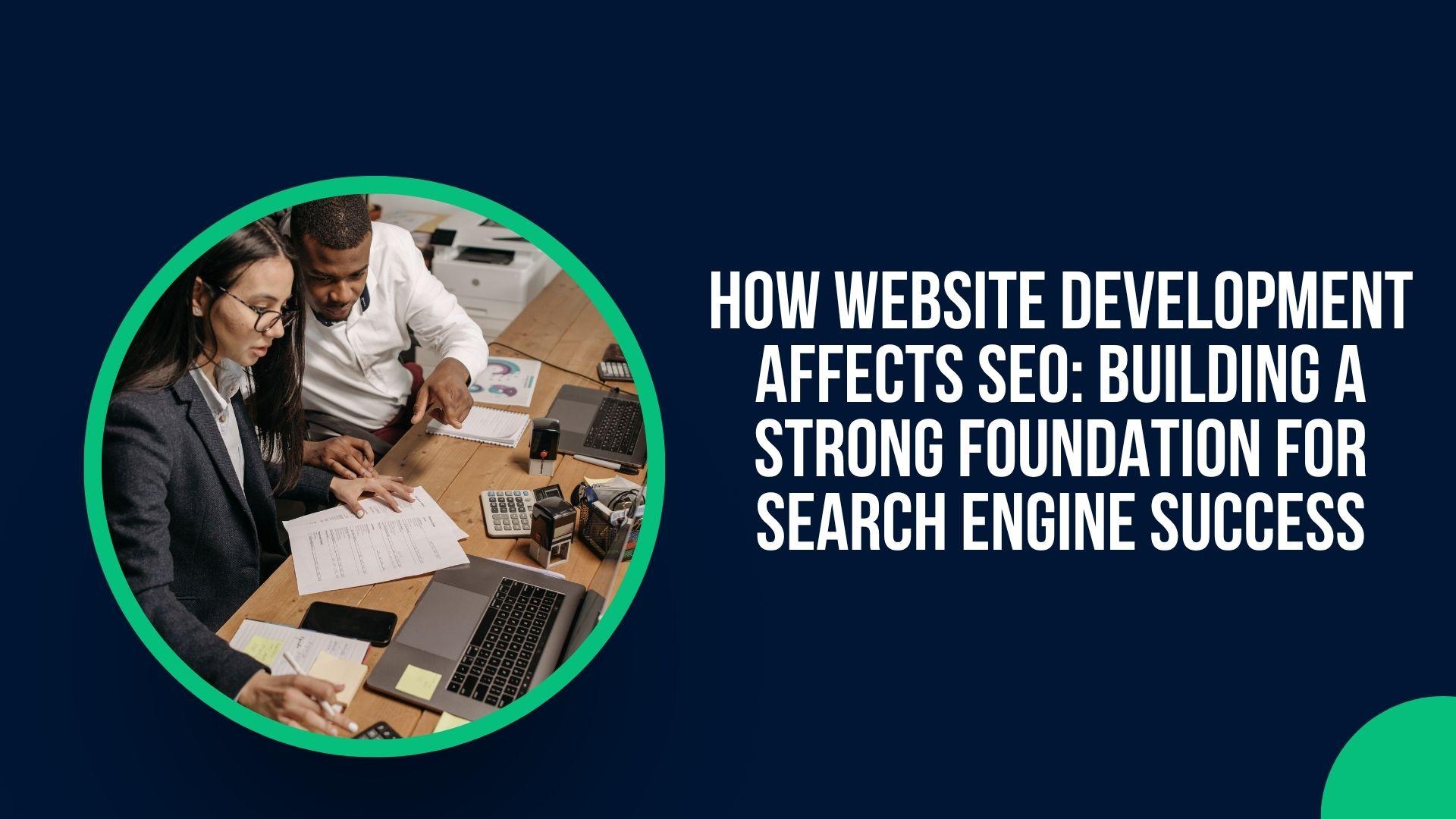Search Engine Optimization (SEO) is a cornerstone of digital visibility, but many overlook how deeply intertwined it is with website development. While keywords and backlinks often steal the spotlight, your site’s underlying structure, code, and user experience all play a critical role in how search engines rank your content. In this article, we will explore how website development affects SEO, and what developers and business owners should keep in mind when building or updating a site.
The Crucial Role of Website Development in SEO
Website development forms the technical backbone of your online presence. A well-developed website ensures that search engines can crawl, index, and rank your pages efficiently. From page speed to mobile responsiveness, development decisions directly influence SEO performance.
Page Speed and Performance
Why It Matters:
Google uses page speed as a ranking factor, especially for mobile search. Users are more likely to leave a site that takes more than a few seconds to load.
Developer Impact:
-
Minimize HTTP requests
-
Optimize images and multimedia
-
Enable browser caching
-
Compress files with Gzip
-
Use content delivery networks (CDNs)
A faster site leads to better rankings, lower bounce rates, and improved conversions.
Mobile-Friendly Design
Why It Matters:
Since Google’s mobile-first indexing became standard, the mobile version of your website is now the primary version used for indexing and ranking.
Developer Impact:
-
Use responsive design techniques
-
Avoid mobile-specific URLs that create duplicate content
-
Ensure buttons and fonts are touch-friendly
Developers must test how websites perform across a range of screen sizes and devices.
Clean and SEO-Friendly Code
Why It Matters:
Search engine bots rely on clean, well-structured code to understand page content. Poor coding practices can hinder indexing and ranking.
These practices help both search engines and assistive technologies understand your content better.
Site Architecture and Navigation
Why It Matters:
A logical structure improves crawlability and ensures all important pages are indexed. It also boosts user experience, which is increasingly a ranking signal.
Developer Impact:
-
Create a flat architecture where key pages are no more than 2-3 clicks from the homepage
-
Use internal linking to connect related content
-
Implement breadcrumb navigation for better hierarchy
-
Use canonical tags to avoid duplicate content issues
Organized site architecture allows search engines to prioritize your most valuable content.
URL Structure and SEO
Why It Matters:
Descriptive, clean URLs improve click-through rates and make it easier for search engines to understand a page’s purpose.
Developer Impact:
-
Avoid long, dynamic URLs with special characters
-
Use hyphens to separate words (/seo-tips not /seotips)
-
Keep URLs short and relevant to the page content
Consistent and clean URLs enhance both SEO and usability.
Security and HTTPS
Why It Matters:
Google confirmed that HTTPS is a ranking signal. Secure websites also build user trust and prevent data interception.
Developer Impact:
-
Install an SSL certificate
-
Redirect all HTTP traffic to HTTPS
-
Ensure all assets (images, scripts, stylesheets) load over HTTPS
Not only does HTTPS improve SEO, but it also complies with data protection standards.
Crawlability and Indexability
Why It Matters:
If search engines can’t access your content, they can’t rank it.
Developer Impact:
-
Use robots.txt to guide crawlers appropriately
-
Avoid blocking important resources like JS and CSS files
-
Generate and submit an XML sitemap
-
Avoid using Flash or other non-crawlable technologies
Proper indexing ensures your content appears in search results.
Core Web Vitals and User Experience
Why It Matters:
Google’s Core Web Vitals measure loading, interactivity, and visual stability—key factors for SEO and UX.
Developer Impact:
-
Optimize Largest Contentful Paint (LCP)
-
Minimize First Input Delay (FID)
-
Reduce Cumulative Layout Shift (CLS)
Improving these metrics can lead to higher rankings and better engagement.
CMS and SEO Plugins
Why It Matters:
Your choice of Content Management System (CMS) affects how easily you can implement SEO practices.
Developer Impact:
-
Choose SEO-friendly platforms like WordPress, Joomla, or Drupal
-
Install reputable plugins (e.g., Yoast SEO, Rank Math)
-
Customize themes and templates for better performance
Even with plugins, a developer’s input is essential for optimal performance.
Conclusion
Website development is not just about creating something visually appealing—it is about crafting a functional, efficient, and accessible foundation for your SEO strategy. Developers play a vital role in ensuring that a website is search-engine-friendly from the ground up. By aligning development with SEO best practices, businesses can boost visibility, improve user satisfaction, and drive long-term digital success.



